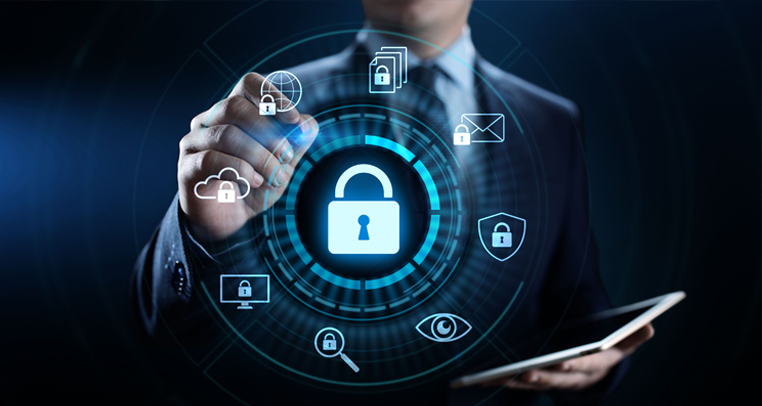Introduction
Cybercrime is on the rise, and the criminals are getting smarter. Malware attacks, phishing scams, fake emails, and spoofed accounts can give cybercriminals access to your passwords, financial information, and more. October is Cybersecurity Awareness Month, a time when we highlight both the risks of cybercrime and the solutions that can help keep your data secure.
If you follow the headlines, it may seem like cybercrime attacks are limited to huge data breaches by hackers targeting large corporations. But the fact is that most cybercrime occurs on a widespread scale that can affect even the single user.
Let’s look at a few common forms of cybercrime and then discuss the steps you can take to confront digital crime head-on.
What Are the Biggest Threats to Cybersecurity?
When it comes to compromising your data, cybercriminals have a range of tools at their disposal. Let’s take a closer look at a few of the most common.
Phishing Scams
Often it is easier for a criminal to convince you to volunteer sensitive information that it would be to hack into your system. Phishing scams use communications from seemingly respected sources to try to gain access to your passwords, account numbers, etc. Ever receive an email from a recognized user like eBay or a credit card company, but something seems a little off? Many of these emails claim that action is required on your account and prompt you to log in to a site they provide. If you take the bait, the criminals take your data.
Ransomware
Even more insidious are ransomware scams, in which a hacker gains access to your sensitive information, locks it down where you cannot access it, then offers to sell it back to you for an exorbitant price. Ransomware attacks accounted for $20B in losses worldwide, and that does not include money lost to network reboots and data recovery.
Malware
Malware can take many forms, with some designed to extract sensitive information and others designed simply to wreak havoc with your system. Malware attacks can leave behind viruses that can slow or cripple your computer’s ability to function.
Intercepted Emails
If your workers have company computers or smartphones that they use at home, they could be putting your company’s security at risk. Lots of people prefer to do their work at a cafe rather than at home. But how secure is the host’s network? Without a virtual private network (VPN), your employees could unwittingly be sharing sensitive information without knowing it. Scammers can intercept emails in transit, and with them obtain critical passwords, account numbers, or other information.
How You Can Fight Cybercrime
Given the variety of cybercrime, keeping your data secure can seem daunting. Fortunately there are some tools you can use to tip the balance in your favor.
- Multi-factor Authentication, also called two-step verification, offers an extra layer of protection against cybercriminals. The way it works is simple. In addition to your password, you’d be prompted to enter a second form of proof that you are in fact you. This could be a second form of authentication like a personal identification number or a personal security question (e.g., “What’s the name of your childhood pet?”). Face recognition and fingerprint ID are other forms of two-factor verification.
- Robust passwords are another way you can safeguard your sensitive data. Most people don’t put a lot of thought into passwords, but for security purposes, the more complex the better. To create a truly robust password, you’ll want to use both uppercase and lowercase letters, along with numbers and special characters. Stay away from the obvious (like your name and birth year) and keep a careful record of your passwords for each site. And with a complex password, you won’t have to replace passwords as often.
- Don’t skip software updates. Your computer’s security and other software is updated periodically, so don’t let those updates sit idle. Many software updates include security features that either close potential vulnerabilities or beef-up vigilance. When you get an update, install it without delay—it’ll make it tougher for hackers to access your system.
- Back-up everything. If your network is compromised, a reboot can be costly and time consuming. Cloud storage technology allows you to keep your sensitive data (and even a copy of your entire website) stored safely in the Cloud. So even if your site is compromised, you can be up and running again in minutes, not days.
- Train your workers to spot phishing scams. A savvy staff is an excellent way to combat cybercrime. Be sure that your online workers understand the threats and recognize the signs of a phishing scam. All phishing incidents should also be identified and reported.
Connect with an Expert
Given the nature and variety of cybercrime, it may seem like you’re fighting a multifront battle. Don’t get discouraged. At Click Canyon, we work with businesses like yours each day to help design and build a secure website, install appropriate security software, teach you to spot phishers, and back up your site in the Cloud. Why go it alone? Contact Click Canyon today and take a stand against cybercrime.

